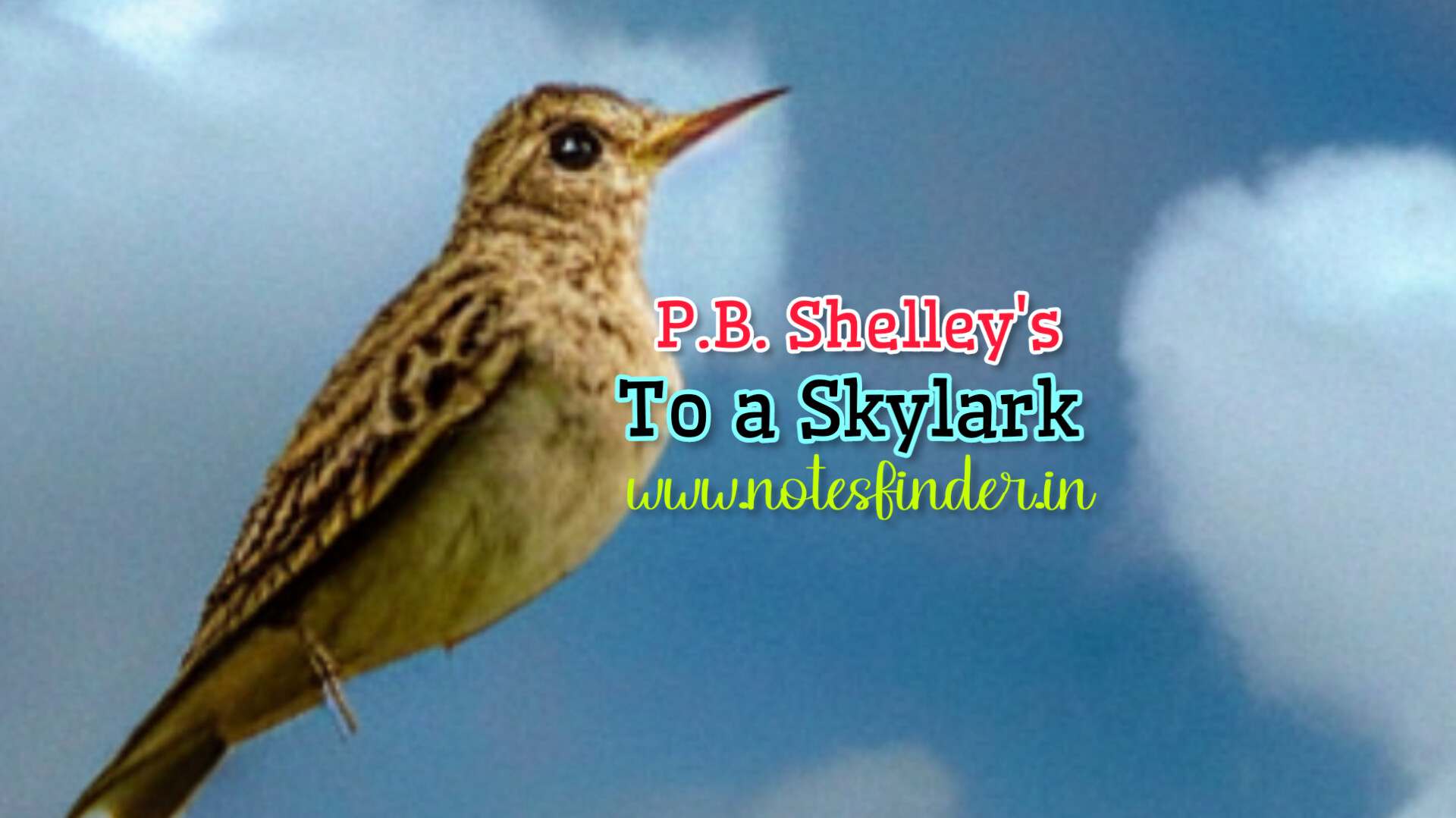Strange Fits of Passion Have I Known- William Wordsworth
Strange fits of passion have I known,
And I will dare to tell,
But in the lover's ear alone,
What once to me befel.When she I loved looked every day
Fresh as a rose in June,
I to her cottage bent my way,
Beneath an evening moon.Upon the moon I fixed my eye,
All over the wide lea;
With quickening pace my horse drew nigh
Those paths so dear to me.
And now we reached the orchard-plot,
And, as we climbed the hill,
The sinking moon to Lucy's cot
Came near, and nearer still.In one of those sweet dreams I slept,
Kind Nature's gentlest boon!
And, all the while, my eyes I kept
On the descending moon.My horse moved on; hoof after hoof
He raised, and never stopped:
When down behind the cottage roof
At once, the bright moon dropped.What fond and wayward thoughts will slide
Into a Lover's head!
“O mercy!” to myself I cried,
“If Lucy should be dead!”
Strange Fits of Passion Have I Known | Important Points for MCQ Answers
- • The poem is a lyrical ballad.
- • This is written during Wordsworth’s stay in Germany in 1798.
- • It was first published in the second edition of Lyrical Ballads(1800)
- • It has 7 stanzas, 28 lines.
- • Rhyme scheme – ABAB
- • The poem, being a ballad, employs the regular ballad stanza with iambic tetrameter and iambic trimeter in alternate lines.
- • Most of the lines in the poem are end-stopped.
- • The poem is narrated by a first person narrator.
- • The speaker is planning to visit his lover.
- • The poem takes place at night.
- • The speaker claims that he would share his feelings only with his lover.
- • His feelings are strange.
- • He compares his lover to a rose which is fresh.
- • The month mentioned in the poem is June.
- • The speaker is going to his lover’s cottage in an evening.
- • The moon mentioned in the poem is an evening -moon.
- • The poet fixed his eye upon the moon.
- • The paths to his lover’s cottage is dear to the speaker.
- • The moon in the poem is sinking.
- * The speaker crosses a wide lea, an orchard- plot and climbed a hill to reach Lucy’s cottage.
- • Nature is referred in the poem as kind.
- • The tone of the poem is mysterious and romantic.
- • ‘Fresh as a rose’ is an example of a simile.
- • ‘Hoof after hoof’ gives the indication that the speaker is drawing closer to the destination.
- • The moon in the poem seems to represent a guiding light and a symbol of the speaker’s lover.
- • The moon is depicted as evening, descending and sinking. (evening -moon, descending moon, sinking- moon)
- • The word ‘moon’ is mentioned 5 times.
- • The only flower mentioned in the poem is rose.
- • The speaker’s anxiety and fear over losing his lover are the strange fits of passion.
- • The atmosphere of the poem as a whole may be described as dreamlike.
- • The speaker’s destination is a cottage.
- • The sight of a dropped moon suddenly provokes the speaker’s fits of passion.
- • The hill, the cottage, the orchard plot are mentioned in the poem as part of the landscape.
- • “In one of those sweet dreams I slept” contains an example of alliteration.
- • The image of the moon at the poem’s conclusion creates a sense of foreboding.
- • Lucy is compared to a rose.
- • The comparison of Lucy to a rose suggests that she is beautiful, fragile and mortal.
- • “The sinking moon to Lucy’s cot/Came near, and nearer still” (alliteration): The repeated “s” sound in “sinking,” “Lucy,” and “still” creates a gentle, harmonious effect.
- • “In one of those sweet dreams I slept” (alliteration): The “s” sound creates a gentle, dreamlike tone.
- • “Hoof after hoof” (Onomatopoeia): The repeated “o” vowel sounds mimic the sound of the horse trotting along.



